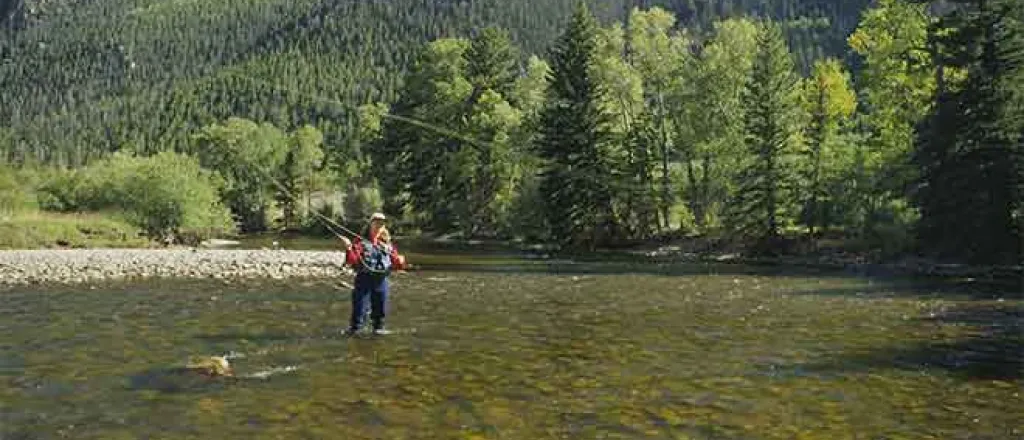
Colorado Supreme Court rules against fisherman's 'standing' in river access case
(The Center Square) – What started as a man standing in a river fishing ended with the Colorado Supreme Court ruling he doesn’t have legal standing to sue to gain access to the water.
In a unanimous decision, the court ruled Roger Hill couldn’t ask the court to declare access for him to a segment of the Arkansas River. Hill argued when Colorado became a state in 1876, the riverbed was transferred from the federal government to the state. Therefore, Hill contended he was on state property when fishing in the river and not trespassing on private property.
“Hill argues that, because the river was navigable at statehood, the riverbed is public land owned by the State of Colorado,” the appeals court claim stated. “Thus, he, as a member of the public, is not trespassing by wading on the riverbed.”
After an initial loss in the court of appeals, Hill’s request for declaratory judgment was accepted by that court along with an interpretation of the criminal trespass statute. When appealed to the Supreme Court, it ruled the trespassing issue wasn’t within the scope of the case.
Hill, 81, alleged in court documents the owners of a home and the land overlooking his favorite fishing hole repeatedly “chased him off the property, sometimes with force. Specifically, Hill alleges that they threatened to have him arrested for trespass, threw baseball-sized rocks at him, and shot a gun at his fishing buddy.”
In writing the opinion for the court, Justice Melissa Hart noted the case produced hundreds of pages of briefs on public trust doctrine, equal footing doctrine and arguments on who is best positioned to determine legal policy on access to rivers.
“But those subjects are ultimately irrelevant to the issue before us,” Justice Hart wrote in the 11-page ruling. “Rather, this case requires us to answer just one question: whether Roger Hill has a legally protected interest that affords him standing to pursue his claim for a declaratory judgment ‘that a river segment was navigable for title at statehood and belongs to the State.’ He does not.”
In a brief filed with the Colorado Supreme Court in 2022, Colorado Democrat Attorney General Phil Weiser objected to the appeals court decision to give Hill the possibility of a declaratory judgment.
“This decision was wrong and, absent resolution by this Court, creates an unworkable process that threatens to upset long-settled arrangements governing water and river access,” Weiser wrote.

















